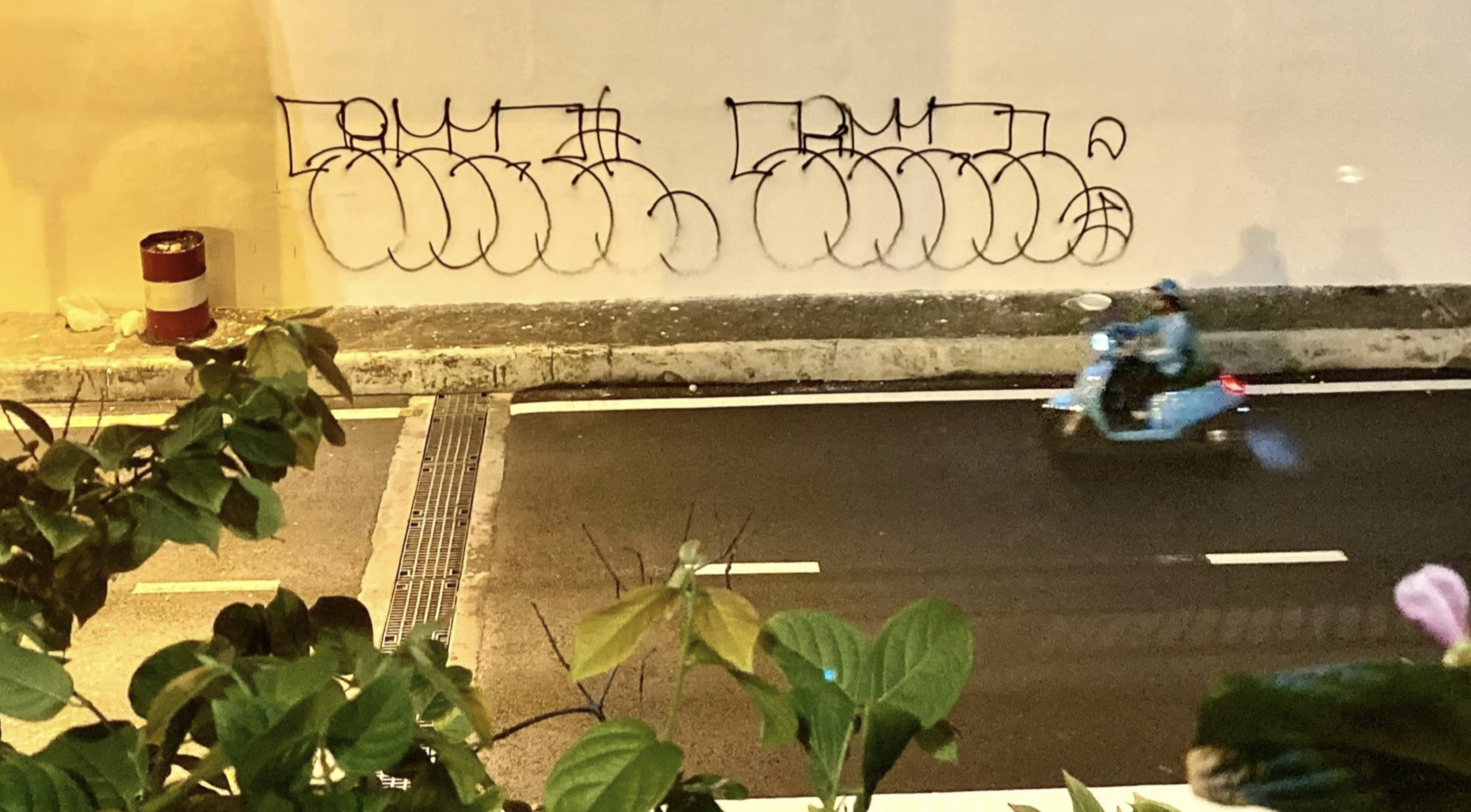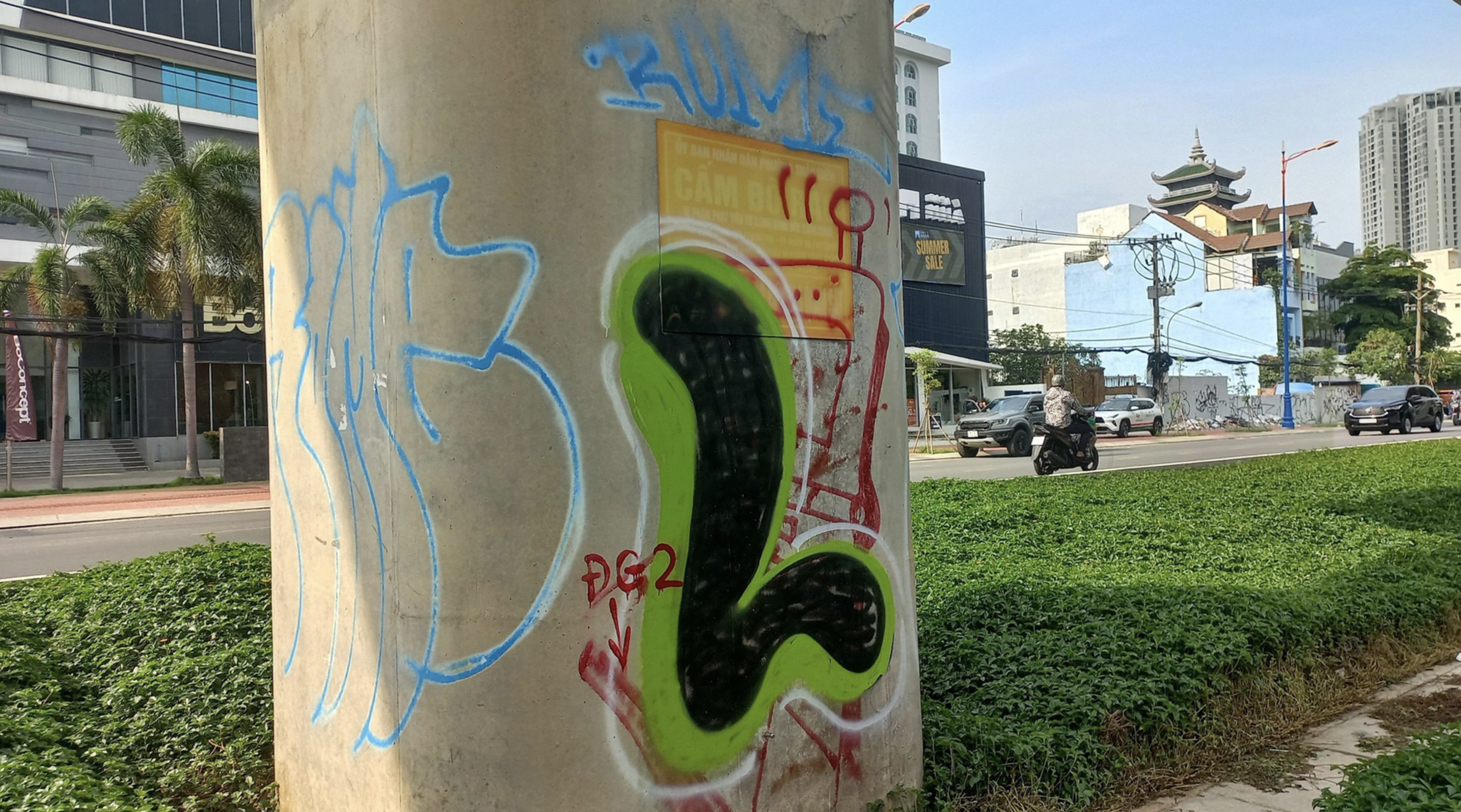Vietnam imposes punishments, including administrative fines and criminal proceedings, for acts of vandalism like graffiti painting; however, the administrative fines are often not severe enough to deter such behavior.
In particular, Ho Chi Minh City is struggling with vandalism and has implemented various measures to prevent it, but these efforts have not been effective.
The city has initiated a graffiti cleanup campaign at a total cost of VND5 billion (over US$197,000), yet vandals continue to deface bridges, walls, and underpasses.
For instance, a six-meter-long piece of graffiti appeared on a wall of the Nguyen Huu Canh Underpass in Binh Thanh District early on Monday despite the fact that this public structure had just received a makeover a few days prior.
Many believe that the administrative fines for taggers are too low to eliminate the problem.
Some have suggested imposing harsher penalties and steeper fines on those who deface cityscapes and damage public property.
Lawyer Le Van Hoan from the Ho Chi Minh City Bar Association pointed out that according to Article 7 of Decree 144/2021, individuals who illegally spray paint, write, draw, or post pictures on walls or utility poles in public spaces can face fines from VND1 million ($40) to VND2 million ($80).
Offenders are required to restore any defaced walls or public structures.
If vandals knowingly engage in illegal acts, they can be fined VND3 million ($120) to VND5 million ($200).
Those who cause damage to private or public property may also face criminal proceedings.
|
|
| A pier of Ho Chi Minh City’s first metro line is covered with graffiti. Photo: Dinh Khai / Tuoi Tre |
Hoan said that administrative fines are not hefty enough to discourage such vandals.
“To prevent graffiti vandalism, I suggest competent agencies should employ more drastic measures, increase administrative fines, install more surveillance cameras, and hang more signs banning tagging on public structures,” lawyer Hoan said.
Also, lawyer Tran Minh Hung from the Ho Chi Minh City Bar Association said that based on footage from surveillance cameras, police officers can penalize vandals and assess the damage of assets caused by illegal graffiti to initiate criminal proceedings against these offenders.
Moreover, local authorities should popularize the ban on graffiti among both Vietnamese and foreigners, and erect signs prohibiting tagging in English at public structures.
A representative from the Road Traffic Infrastructure Management Center, part of the city's Department of Transport, informed Tuoi Tre (Youth) newspaper that the center promptly ordered the removal of graffiti from the wall of the Nguyen Huu Canh Underpass after being notified of the ongoing vandalism.
“Rampant graffiti has become a significant issue in Ho Chi Minh City,” the representative stated.
“The center hopes that administrative fines for illegal graffiti will be increased to effectively combat this vandalism."
Like us on Facebook or follow us on Twitter to get the latest news about Vietnam!


















































